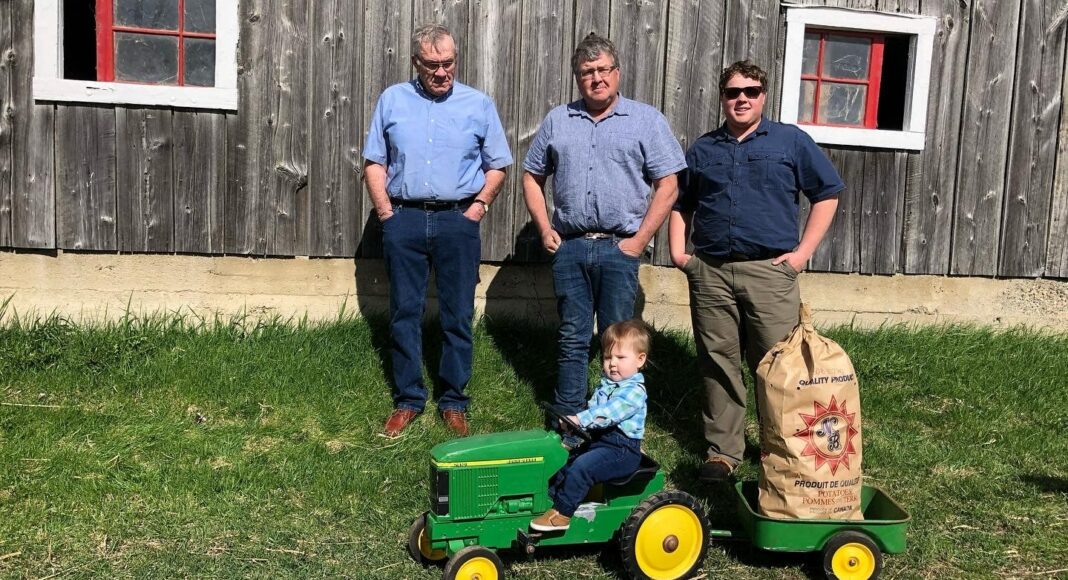At our farm, potatoes are our focus. Yes, we have 250 head of cattle, and we grow barley, winter wheat, red clover, Timothy and corn, but that’s all to help our spud crop at the end of the day.
Everything that we do on the farm is potato oriented. That’s what drives us, that’s where our money comes from. I think that the cattle play into that. When you have another reason to do that three-year rotation, and it comes with manure, and the benefits that you get, yes, it’s a little more work, but you’re saving money in the long run.
My family has been growing potatoes for generations on our farm Richard Culberson and Sons in Rosedale, N.B. I’m the third generation working the land now with my father, Charles, Grandpa Richard and Uncle Ray. The four of us work together to grow the best potato crops we can.
About seven years ago we really started taking a closer look at our soil. Our soil is what makes us money. We don’t like to see our soil washing away into the woods because then we’re losing money. We like to see our soil have structure to it and be viable and able to produce a good crop. Without our soil, we don’t have anything. Taking care of it is just something that comes with the job, if you want to be successful for years to come.
We had always spread the livestock manure on our fields, but besides that we hadn’t done much that could be called regenerative ag. We first started by moving away from using a plow and purchased a Lemken karat — a chisel plow. Our fields have a lot of hills in them and it’s crazy the amount of erosion that we save by using it.
We do a three-year rotation mainly. We plant potatoes and then a cereal crop, which is under seeded with red clover and Timothy. Once our cereal crop is harvested, live roots are then established before winter. The forage crop is cut in the spring and then regrows before its tilled ahead of potato planting.
A huge change we made on our farm was moving to a single pass before we plant potatoes. When I was growing up, we used to do three passes. We have so many rocks in our soil that we’d do a pass and then it’d dig up so many rocks that we’d have to have go through with a rock picker to pick them all up. This tramps the soil down so badly that it needs to be worked again to fluff it up. With the karat, now we’re able to do one pass in the spring, saving us time and fuel.
All these practices are making our soil structure way better for potato production. We’re not just pulverizing our soil to death now when we’re making the seed bed. It hasn’t always been easy making these changes but at the end of the day it’s making our farm more profitable for the long-term.











